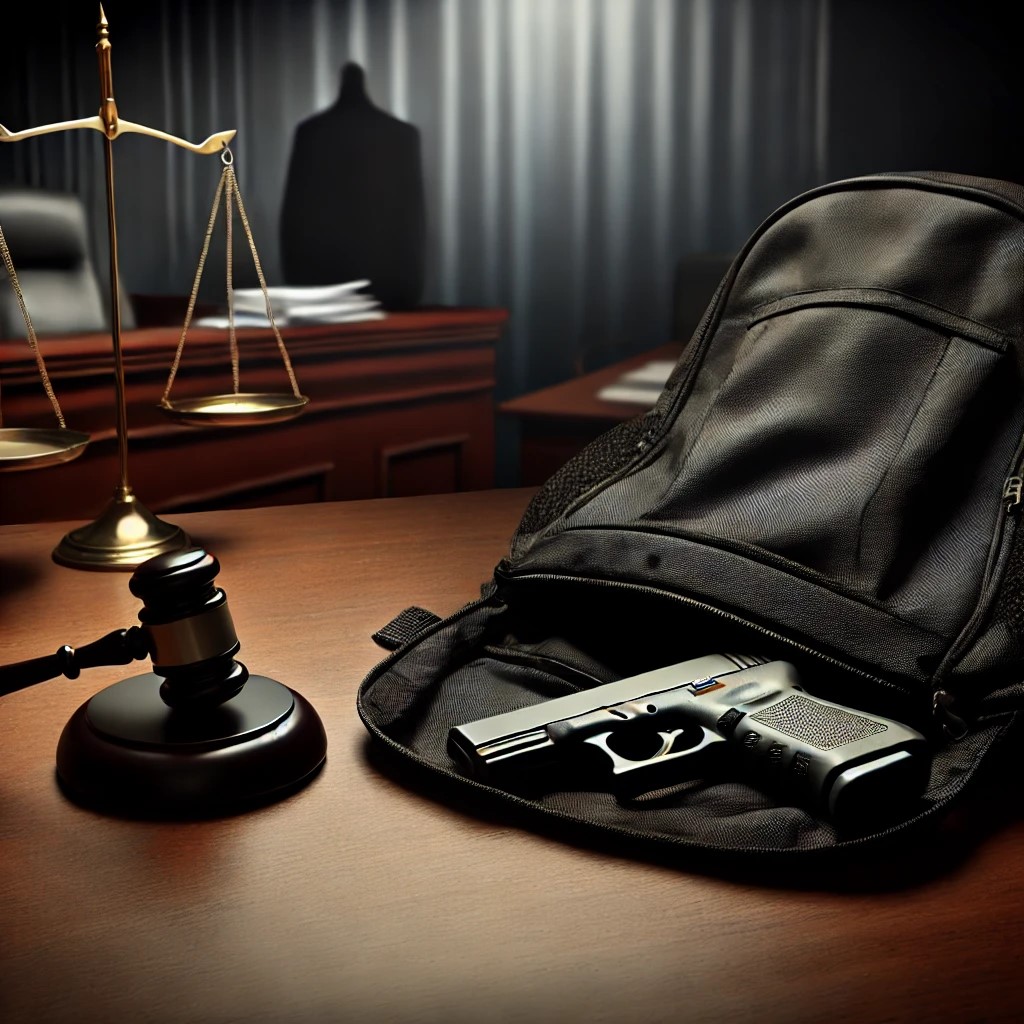Key Ruling in Commonwealth v. Elise Coles: Pennsylvania Superior Court Reverses Suppression of Firearm Evidence in Fourth Amendment Dispute
Oct. 26, 2024
 Commonwealth v. Coles, 2024 Pa. Super. 121 (Pa. Super. Ct. 2024)
Commonwealth v. Coles, 2024 Pa. Super. 121 (Pa. Super. Ct. 2024)
In Commonwealth of Pennsylvania v. Elise Coles, the Pennsylvania Superior Court addressed a suppression issue involving the seizure of a firearm. The court reviewed the Philadelphia Court of Common Pleas’ decision to suppress evidence from a police search, ultimately reversing the suppression and remanding the case for trial. This case centers on Fourth Amendment protections, specifically regarding searches and seizures, and the doctrine of abandonment as it applies to property rights and privacy expectations.
Background
On September 24, 2020, Philadelphia police officers observed a group, including Elise Coles, on a street corner where they appeared to be smoking marijuana. Officers approached the group to investigate. As they approached, Coles fled into a nearby residence, carrying a black backpack. Inside the residence, she discarded the bag in the kitchen and continued her attempt to evade police. Officers subsequently found the bag containing a 32-caliber Colt Model 1903 handgun, which Coles did not have a license to carry. Coles was later charged with unlawful possession of a firearm.
During pre-trial motions, Coles’ defense argued that the search of her bag was unconstitutional, contending that she retained a reasonable expectation of privacy over it. The trial court sided with the defense, granting the suppression motion. The Commonwealth appealed, arguing that Coles had abandoned her bag, eliminating any reasonable expectation of privacy.
Legal Issues
Abandonment and Privacy Expectation: The key issue before the Superior Court was whether Coles had abandoned her backpack by discarding it in a house she had entered unlawfully. If she had, the police search would not require probable cause or reasonable suspicion.
Search and Seizure Protections: Under both the U.S. and Pennsylvania Constitutions, individuals are protected from unreasonable searches and seizures. Generally, an individual must have a reasonable expectation of privacy in the property in question to challenge a search.

Court’s Reasoning and Decision
The Pennsylvania Superior Court ruled that Coles did not retain a reasonable expectation of privacy in her backpack due to her voluntary abandonment of it. The court emphasized several points:
Abandonment Doctrine: The doctrine holds that property abandoned voluntarily, without coercion, is not protected under Fourth Amendment rights. In Commonwealth v. Hall and Commonwealth v. Barnette, Pennsylvania courts have consistently upheld that abandonment nullifies an individual’s expectation of privacy in property. By entering the residence unlawfully and leaving her backpack behind while attempting to flee, Coles’ actions were interpreted as voluntary abandonment.
Expectation of Privacy: The court clarified that even though Coles owned the backpack, her unlawful entry into another person’s home negated any reasonable privacy expectation. Citing Commonwealth v. Byrd, the court emphasized that a reasonable expectation of privacy is necessary to challenge a search legally.
Unlawful Entry and Police Action: Coles argued that the officers lacked reasonable suspicion or probable cause to investigate the backpack. However, as Coles had already abandoned it, police were not required to meet the typical standards of probable cause or reasonable suspicion to conduct a search.
In light of these principles, the court found that the suppression court erred in its interpretation, concluding that Coles’ abandonment of the bag removed her privacy rights over its contents. Thus, the Superior Court reversed the suppression order, remanding the case for trial.
Implications
This decision reinforces Pennsylvania’s adherence to the abandonment doctrine and underscores a critical distinction between physical possession and legal privacy expectations. For property to be protected under Fourth Amendment rights, an individual must not only own it but must also retain a reasonable expectation of privacy based on lawful possession. Unlawful actions, like unauthorized entry into a private residence, can severely impact one’s ability to claim privacy over abandoned property.
This ruling also clarifies that when evaluating abandonment, courts will consider both the individual’s intent and the legality of their actions in the abandonment context. In scenarios involving evasion from law enforcement, any items discarded in flight may be considered abandoned, especially if discarded in unauthorized spaces.
 In Commonwealth of Pennsylvania v. Elise Coles, the Pennsylvania Superior Court underscored the limitations on Fourth Amendment protections regarding abandoned property. The court’s decision to reverse the suppression motion is a reaffirmation that constitutional protections depend not only on ownership but also on lawful possession and behavior that reflects a reasonable expectation of privacy. By remanding the case for trial, the court provides an important precedent on how abandonment and privacy expectations are evaluated in Pennsylvania’s legal system.
In Commonwealth of Pennsylvania v. Elise Coles, the Pennsylvania Superior Court underscored the limitations on Fourth Amendment protections regarding abandoned property. The court’s decision to reverse the suppression motion is a reaffirmation that constitutional protections depend not only on ownership but also on lawful possession and behavior that reflects a reasonable expectation of privacy. By remanding the case for trial, the court provides an important precedent on how abandonment and privacy expectations are evaluated in Pennsylvania’s legal system.
At The Town Law LLC, our team of experienced criminal defense attorneys in Philadelphia is dedicated to protecting the rights of individuals facing serious charges. Whether you're dealing with DUI offenses, drug crimes, gun charges, or other criminal matters, we provide aggressive legal representation to fight for the best possible outcome. With a deep understanding of Pennsylvania criminal law and a proven track record in court, our Philadelphia defense lawyers are committed to ensuring justice for our clients. If you or a loved one is facing criminal charges, contact The Town Law LLC today for a free consultation and let us defend your future.
